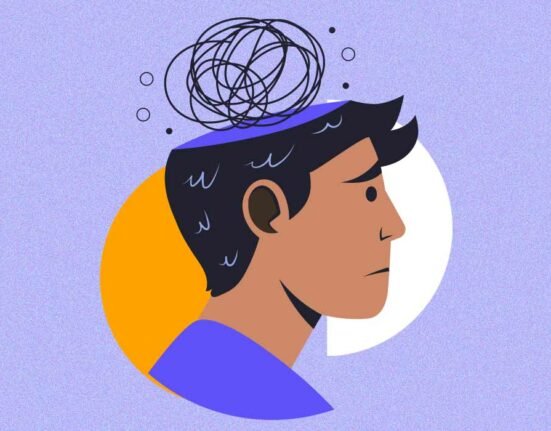Oftentimes, when verbally conversing about our experiences and struggles becomes difficult, we turn to expression through writing. Whether it be a few messy scribbles on the edge of a notebook or the notes section of our phones, sometimes expression through poetry and writing becomes our only solace.
Poetry has existed almost as long as language itself. For centuries, they have been an important form of communication and expressing oneself, of saying what couldn’t be directly spoken. Recent studies show that more than a method to communicate expressions with others, poetry plays a deeper role in processing thoughts, regulating emotions buried deep inside and also shaping the mental health of individuals.
To express it simply, poetry is not merely a few words strung together, but rather the mind’s way of making sense of things. Weaving our pain into heartfelt verses has not only been one of the oldest forms of therapeutic expression but is also an essential part of being human. Perhaps conforming to this idea, Pablo Neruda once described poetry as “an act of peace,” while Joseph Roux claimed it to be “the truth in its Sunday clothes.”
Read More: Emotion Regulation Across the Lifespan: Mechanisms and Outcomes
What is Catharsis?
In its simplest form, Catharsis is a release of emotions. Originally coined “katharsis” by Greek philosopher Aristotle (in his work Poetics, chapter 4), it refers to “purification” or “cleansing”. Aristotle used the word in the context of the “emotional purge” that occurs when a viewer watches an emotional drama. The role of catharsis is not only to remove stress but also to bring a positive change in the individual’s mental state.
Our daily lives are riddled with varied forms of stressors that bring the feeling of sadness, anger or frustration. These feelings or emotions, if not released in time, may cause further problems like “emotional outbursts” or, in the long term, even burnout. People usually let these out in the form of talking to their dear ones, engaging in their preferred recreational activities or, as we discuss in this article, through writing or poetry.
Read More: Beyond the Stressor: The Science of Emotion-Focused Coping
Poetry as a Means for Catharsis: Emotional Release

Poetry is a tool that gives voice to the unspoken thoughts. Oftentimes, when dealing with issues or pain, we can’t speak them aloud either because we can’t make sense of them, or we don’t wish for others to know. In such circumstances, poetry helps in externalising such thoughts and emotions, giving them a voice. In turn, they allow a person to let out their anger, sadness, worries or anxiety in written form. Things which can be difficult to explain directly can be written in abstract using metaphors, symbols, which are important parts of poetry
According to Psychologist (Clinical) & PhD Scholar Isaac Thomas, in my clinical experience, writing poems often provides individuals with a way to identify and express things that are usually formless, such as joy, excitement, fear, shame, ambition, and aspirations. The process of writing poetry allows one to hold a small distance from these aspects, giving an opportunity for meaningful reflection and personal growth based on one’s thoughts, feelings, and experiences.
Literary devices in poetry or any creative writing, such as imagery and metaphors, show the reflexive abilities of a person, how they faced challenges or made meaning out of life situations. Research on expressive writing and poetry-based interventions shows consistent benefits for catharsis and emotional processing, especially when writing is brief, somewhat regular (once every few days or weekly), and when and where needed.
A practical advantage of poetry lies in its flexibility; a single line or image can express complex feelings without the need for a complete story or narrative. It’s also important to know that working alone through strong emotions can be tough, so it’s a good idea to pair writing with support from a therapist or a trusted friend to stay grounded.
While poetry isn’t a solution for everything, it is an accessible and personal tool that anyone can use. Whether you write a short poem or a longer piece, whether it’s just for yourself or someone else, engaging oneself in writing those few lines can help find meaning and relief.
Poetry as a Means for Emotional Processing
“Before there was psychotherapy, there was poetry, which can be recognised as one of the oldest healing arts that has been utilised across many different cultures throughout history” —Hoffman and Granger (2015)
Processing of emotions involves first, a feeling of the emotion, followed by thinking about that emotion through recognition, organisation and categorisation. In simple terms, this is making sense or finding meaning in the emotion. When thoughts are put into words, they become real. They cannot be shut away or ignored, as opposed to when they are confined in one’s mind. It helps a person understand why they are reacting the way they are. Whether it be anger, sadness or even a happy emotion, it helps the person understand why they feel so.
How Poetry Heals Us
1. Poetic Tools for Externalisation
Through the use of vivid descriptions or the use of metaphorical meanings, poetry tends to evoke feelings in the audience. The symbolism used in poetry is often loaded with different kinds of emotions that may be difficult to explain in plain words. These poetic tools often help in expressing feelings that are difficult to articulate in simple words. Instead, poetry turns them into abstract forms that allow the writer to speak.
2. Validation
In psychology, validation is the acknowledgement and acceptance of another person’s thoughts, feelings, behaviours and experiences. Poetry allows people who have been silenced by societal norms (especially related to conversations around mental health) to tell their story without judgment, and helps in driving away the isolation that patients and trauma survivors often face.
3. Confidence and Worth
Poetry has been seen to affect one’s confidence and sense of worth. It helps people push away the harmful narratives they might have internalised due to painful past experiences. Writing poetry, especially about one’s struggles, helps to look at the negative experiences for what they are and detach oneself from such experiences.
Read More: The Psychology of Self-worth
4. Self-awareness, Discovery and Introspection

Through poetry, people can discover themselves. Poetry plays a great role in raising awareness about one’s thoughts, actions, and feelings and why they occur. It not only helps one in understanding and emotion, but also to introspect by reflecting on their ideas and thoughts.
Read More: 5 Hacks to Increase Self-Awareness
5. Interconnection and shared Experiences
Poetry, in all its forms, helps individuals to connect, especially for those readers who have experiences similar to theirs. This helps in reducing isolation and instead, fostering a sense of community or we-feeling among individuals.
6. Empowerment and Resilience
Through empowering silenced voices to understand their thought processes and speak for themselves, poetry helps individuals to build emotional resilience. It helps them to stand tall, move forward and encourages them to cope with difficulties more effectively.
Practising Poetry for Catharsis and Emotional Processing
- Search for spaces and moments when your thoughts are open and emotions can run freely. Finding spaces and times of the day that bring comfort can help greatly.
- One shouldn’t worry too much about perfecting their writing, but rather focus on the emotional aspect to encourage healing
- One shouldn’t limit themselves to one select type of poetry, but rather try different forms to understand which one fits them better, using different poetic tools.
- Poetry can be rewritten over time, which helps in reflecting on changes occurring in one’s emotional state at different times.
Read More: Healing Verse: The Therapeutic Benefits of Writing Poetry
Poetry as a Therapy
Use of poetry as a therapeutic technique dates as far back as 400 BCE, in Egyptian civilisation. Poetry therapy or bibliotherapy is a type of expressive arts therapy that uses poetry and poetic language to encourage emotional healing, self-reflection, growth and resilience. It is often incorporated into other therapies such as CBT to enhance the overall experience. It is particularly used for:
- For trauma survivors, when traditional therapeutic techniques fail to work, poetry therapy helps them talk about unspeakable events/experiences. A study published in the Journal of Traumatic Stress found significant reductions in PTSD in the patients who indulged in poetry and expressive writing compared to those who did not.
- It is used in grief therapy to help people cope with their losses. Poetry helps them understand human mortality and helps them find solace.
- It is also used for patients dealing with depression, anxiety, etc, to gain self-compassion and self-acceptance through poetry.
Limits of Healing through Poetry
- While expressing oneself through poetry can be seen as an effective way of “letting out” emotions, digging up harmful or traumatic incidents can be triggering for some people.
- Poetry and writing on their own are very powerful. However, incorporating it with other therapeutic tools ensures the use of multiple modalities and is generally more effective.
- Poetry is inherently subjective and based on interpretations. What can elicit happiness for one person can cause distress to another. This opens the chance for misinterpretations, which, rather than helping, may cause further issues.
- Poetry therapy is more than just writing poems. If improperly conducted, they can lead to more stressful situations.
- In group settings, sharing personal trauma and such incidents raises some ethical concerns regarding privacy and confidentiality. Proper prior information and consent should be shared before such situations.
Conclusion
Poetry and writing have time and again proved their worth as more than just a form of communication, delving into emotional release as a form of catharsis and shaping mental well-being. Studies show how engaging in poetry is associated with reduced stress, anxiety and better living. Poetry can heal a person through providing them a stage to speak, externalising their emotions, and helping to process them. Additionally, it is an effective tool that provides validation, interconnection and belonging. It also increases feelings of self-confidence, acceptance, worth, and resilience.
Poetry therapy is a powerful tool that has helped people dealing with trauma, grief and other mental health problems. While poetry as a therapy has enough power to inspire or motivate someone, if not done correctly, it can just as easily break them. Proper guidance throughout the process and incorporating it into other therapies can be extremely helpful in healing.
Whether conducted in a therapist’s office or scribbled onto the pages of a personal diary, poetry tells us that our pain shouldn’t control us and our vulnerability isn’t a weakness. That sometimes, a pen, a paper and a will to express can be more than enough to calm the mind, align thoughts and give a space to talk.
FAQs
1. What is Catharsis?
Catharsis comes from a Greek word meaning cleansing. It is an act of releasing emotions. It helps in removing stress and bringing positive change to a person’s life.
2. How is poetry a means of catharsis?
Poetry, with its use of dramatic verses, use of metaphors, imagery and vivid descriptions, helps in telling even unspeakable experiences in an abstract form. In this manner, through its expressive and artistic nature, it allows people to release their thoughts, feelings and emotions.
3. How does poetry help in healing?
Healing through poetry starts right when it gives individuals a stage to speak for themselves without judgment. It helps in not only relieving distress but also validates survivors, increasing a sense of worth and confidence. It makes people introspect and also find a connection with others through shared feelings.
References +
can-poem-be-healing-writing-poetry-through-pain www.goodtherapy.org
Chandra, P., & Verma, P. (2024). Mending wounds with words: The therapeutic nature of poetry. International Journal of Research in English, 6(2), 118–123. https://doi.org/10.33545/26648717.2024.v6.i2b.218
what-is-catharsishttps://www.verywellmind.com/what-is-catharsis-2794968
Czernianin, W. (2013). Catharsis in poetry therapy. Polish Journal of Applied Psychology, 12(2), 25–38. poetry-therapy https://www.medicalnewstoday.com/articles/poetry-therapy













Leave feedback about this